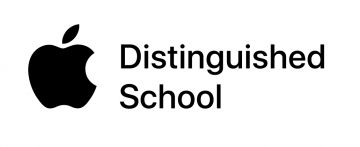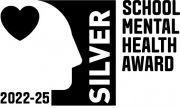Mathematics
Introduction
There is the over-riding aim to maintain and increase confidence in Mathematics, shown by the ability to express ideas fluently, to talk about the subject with assurance and to use the language of Mathematics.
AIMS OF THE DEPARTMENT
To enable pupils to acquire mathematical skills and knowledge with confidence, satisfaction and enjoyment
To give pupils experience of Mathematical activity and investigation and to develop resourcefulness in solving problems
To develop understanding of Mathematical reasoning and process
To enable pupils to use Mathematics clearly and concisely as a language of communication
To develop an ability to apply Mathematics in everyday situations and in other school subjects through connected learning
Key Stage 3
All teachers in the department are involved in the continuous evaluation, revising and up-dating of the units of work in KS3. A variety of strategies and styles will ensure that pupils see Mathematics as exciting, dynamic, stimulating and FUN. Schemes of work provide planned opportunities for a variety of teaching and learning strategies and styles.
It is the responsibility of each class teacher to deliver the units using a wide variety of strategies, methods, processes and techniques suitable to meet the needs of all pupils in their class.
The Maths department uses 2 online maths resources, Dr Frost Maths and MathsPad, which are invaluable learning resources for teachers, pupils and parents.
In 2014, we introduced iPads to our Year 8 pupils. This has proven to be very successful and has led to an increase in pupil motivation.
KS3 pupils are involved in connected learning themes e.g. STEM, European Day and CEAIG throughout the year working alongside other departments.
Pupils participate in school annually in Maths Week Ireland.
Tracking has been introduced in KS3 to monitor pupil progress and highlight areas for improvement, this takes the form of 3 assessments throughout the year. Numeracy support classes are provided weekly after school for for those pupils in KS3 who wish to improve their numeracy skills.
Year 8 Topics
Types of Number
Statistical Diagrams
Angles
Algebra- expressions, substitution, simple equations
2D and 3D shapes
Area and Perimeter
Decimals
Fractions and Percentages
Negative Numbers
Units of Length/Scale Drawing
Year 9 Topics
Number Work
Rounding and Estimation
Statistical Diagrams
Angles
Inequalities
Trial and Improvement
Conversion Graphs
Transformations
Linear Equations
Fraction and Percentages Calculations
Area, Perimeter and Volume
Straight Line Graphs
Measures
Statistics - Averages
Ratio
Probability
Year 10 Topics - Beginning of GCSE Course Topics
Number Work - place value, Order of operation
Working with Decimals
Measures
2D and 3D shape properties
Volume, Area, Perimeter
Area and Circumference of Circles
Data Collection, Analysis, Interpretation, and Sampling
Language of Algebra
Expressions and Formulae
Types of Number
Statistical Averages and Spread
Working with Fractions
Using Statistical Diagrams
Key Stage 4
EXTERNAL EXAMS
At Key Stage 4, it is school policy to encourage certificate exams for all.
Mathematics continues to be a compulsory subject and is banded in Year 11 and Year 12. All pupils are given the opportunity to follow the CCEA GCSE Mathematics course. Pupils are given the opportunity to complete Foundation or Higher level units. The decision as to which units the pupils complete is based on their tracking results, Progress in Maths(PTM) results and teacher assessment.
Year 11 Unit M1-M4
External written examination with calculator lasting from 1hr 45 mins to 2hrs depending on which unit is being taken. It is worth 45% of the GCSE qualification.
Year 12 Unit M6-M8
External written examination - 2 papers - worth 55% of GCSE examination
1 calculator - lasting 1 hr to 1hr 15mins
1 non calculator - lasting 1 hr to 1hr 15mins
After school GCSE revision classes and early morning Maths support are run throughout the year to help pupils in KS4 to be fully prepared for their examinations.
Some Useful Websites
https://www.mathsgenie.co.uk/
https://ccea.org.uk/key-stage-4/gcse/subjects/gcse-mathematics-2017





